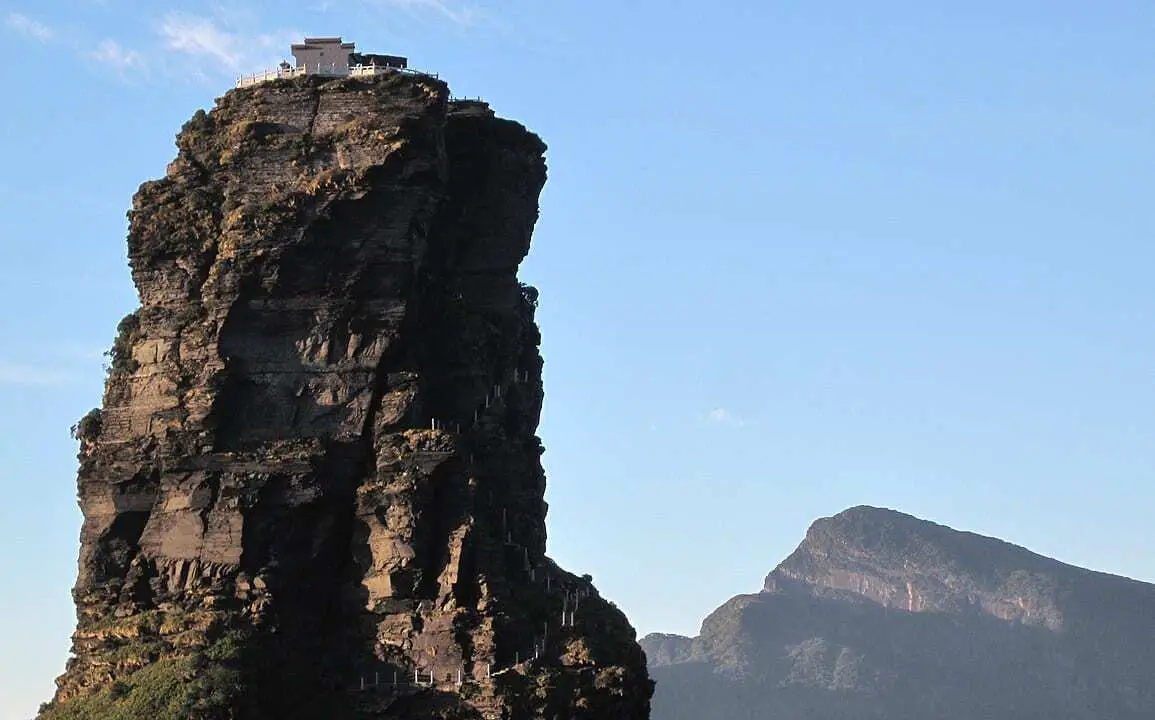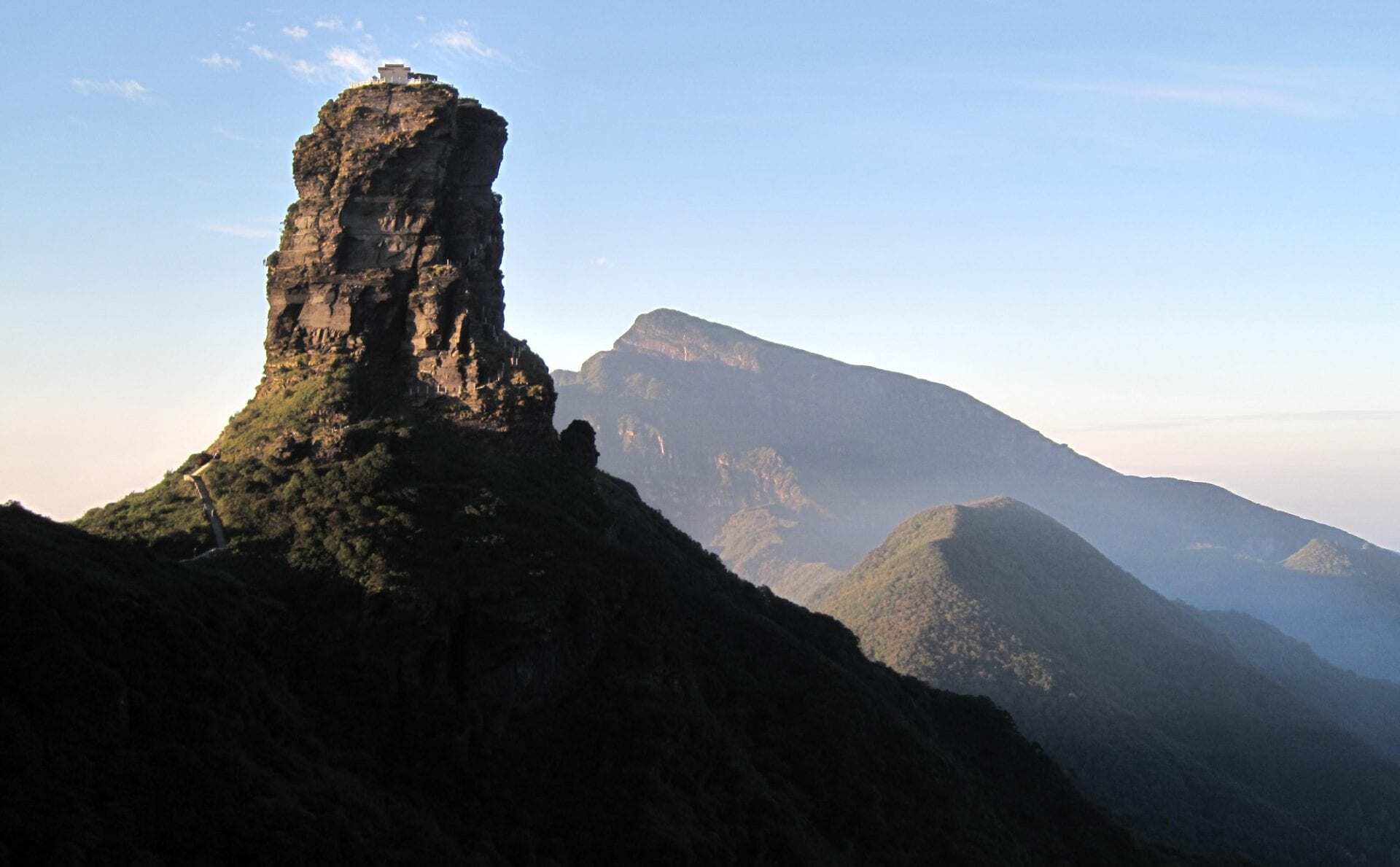Fanjingshan Temple is actually two temples, located on the “Red Clouds Golden Summit or Golden Peak” on Fanjingshan Mountain (also known as Mount Fanjing), the highest point of the Wuling Mountains in southwestern China.
Fenghuang Mountain is considered sacred for reaching enlightenment for the Maitreya Buddha (the “future Buddha”) in Chinese Buddhism, ranking just below the Four Sacred Mountains (Wǔtái Shān “Five-Platform Mountain”, Éméi Shān “High and Lofty Mountain”, Jǐuhuá Shān “Nine Glories Mountain”, and Pǔtuó Shān) of Buddhism.
It is not entirely known when the first temples were built at Fanjingshan, but historians suggest that they may have been constructed during the Tang Dynasty in the 7th century AD.

During the 16th century, the Bozhou rebellion (a Miao uprising that occurred in Guizhou and spread to Sichuan and Huguang) resulted in various Buddhist temples being destroyed in the Fanjingshan region.
After the rebellion was suppressed, the Wanli Emperor (14th Emperor of the Ming dynasty) ordered the reconstruction of the Golden Peak with the Temple of the Buddha & Maitreya Temple.
The Temple of the Buddha is dedicated to the worship of Sakiymuni, representing the present, whilst the Maitreya temple represents the future. Both were built on a vertical pinnacle consisting of two peaks, connected by a stone bridge that traverses a large crevice called the gold sword gorge.
Header Image Credit : chp13579753 (edited)





